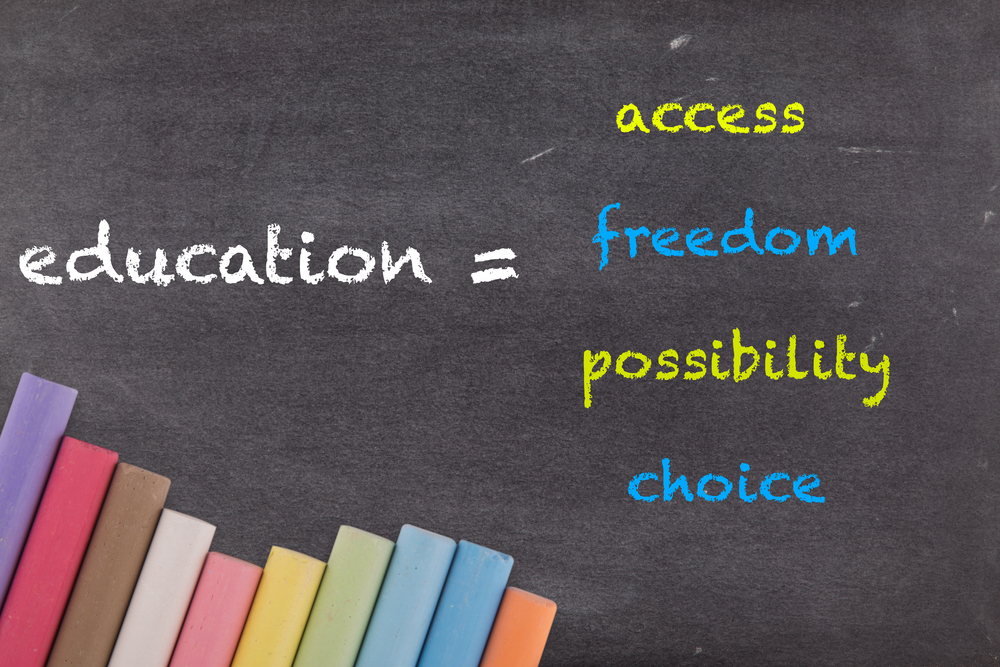U.S. Supreme Court Okays Religious School Tuition Vouchers: Gives Official “Thumbs Up” to Florida’s School Choice Laws
U.S. Supreme Court Okays Religious School Tuition Vouchers: Gives Official “Thumbs Up” to Florida’s School Choice Laws
Earlier this summer, the U.S. Supreme Court found that Maine’s tuition assistance program violated the Free Exercise Clause of the First Amendment. In order to fulfill the Maine Constitution’s guarantee that every child receive a free public education, the program allowed parents residing in rural areas of Maine that do not operate a public secondary school to select from a list of public and approved private schools for which they would like state-funded tuition assistance. Parents could choose from a list that included single-sex schools, schools both in and outside of Maine, and even schools in foreign countries. However, the approved list of schools was, since 1981, limited to “nonsectarian” schools, and excluded private religious schools on the belief that public funding of private religious schools would violate the Establishment Clause of the First Amendment. This restriction, the Court determined, was an impermissible prohibition on the basis of religion.
The result in Carson ex rel. O.C. v. Makin, No. 20-1088, 142 S. Ct. 1987 (June 21, 2022), should not be surprising to anyone who has followed the U.S. Supreme Court’s recent Free Exercise decisions. As recently as 2020, the Court reversed a decision by the Montana Supreme Court that struck down a similar tuition assistance program in that state. While the Montana high court found that because the program allowed public aid to go to religious schools it therefore needed to be invalidated, the Supreme Court reversed, holding that the Free Exercise Clause did not permit Montana to withhold public benefits from religious schools exclusively due to the schools’ religious nature. See Espinoza v. Mont. Dep’t of Rev., 140 S. Ct. 2246 (2020). And the Court just a few years prior to Espinoza struck down a program in Missouri that offered grants to nonprofit organizations that installed playground surfaces made from recycled tires, because the program had an express policy of denying grants to applicants owned or controlled by a religious organization. See Trinity Lutheran Church of Columbia, Inc. v. Comer, 137 S. Ct. 2012 (2017).
Simply put, once the government offers a benefit, it generally cannot disqualify applicants from receiving that benefit just because they are religious. See Espinoza, 140 S. Ct. at 2261; Trinity Lutheran, 137 S. Ct. at 2019 (“[D]enying a generally available benefit solely on account of religious identity imposes a penalty on the free exercise of religion that can be justified only by a state interest of the highest order.” (internal quotations omitted)). Instead, programs that operate to exclude religious entities from receiving government benefits must satisfy strict scrutiny. That is, they must advance a state interest of the highest order and also be narrowly tailored to pursue those interests. As noted above, the Court has been loath to find state programs satisfy this high burden of late. In so doing, the Court has repeatedly confirmed that “a neutral benefit program in which public funds flow to religious organizations through the independent choices of private benefit recipients does not offend the Establishment Clause.” Carson, 142 S. Ct. at 1997. Thus, a state cannot claim a compelling interest—and therefore cannot withstand strict scrutiny—in perpetuating a separation between church and state “more fiercely” than that required under the Federal Constitution.
While Carson’s result was largely expected, it nonetheless represents another marker of what critics say is the broadening of the Free Exercise Clause at the expense of the Establishment Clause. See id. at 2002 (Breyer, J., dissenting) (“The Court today pays almost no attention to the words in the [Establishment] Clause while giving almost exclusive attention to the words in the [Free Exercise Clause].”); see also id. at 2012 (Sotomayor, J., dissenting) (“This Court continues to dismantle the wall of separation between church and state that the Framers fought to build.”). And while states that operate tuition assistance programs must now ensure they are compliant with the Court’s holding, one state need not worry. That is because Florida’s school choice laws already allow parents to use state tuition assistance at religious schools. For example, the Family Empowerment Scholarship Program allows parents who receive state-funded tuition vouchers to use them at private religious schools. See § 1002.394(2)(g), Fla. Stat. Similarly, Florida’s Tax Credit Scholarship Program also permits the distribution of scholarships to families who wish to use them at private religious schools. See § 1002.395(2)(g), Fla. Stat. The same is true for students with disabilities eligible for scholarship assistance, see § 1002.39(7), Fla. Stat., and for participants in Florida’s voluntary prekindergarten program. See §§ 1002.51(7), 1002.53, Fla. Stat.
Three times in the past five years, the U.S. Supreme Court has held that when states offer a benefit, they cannot disqualify entities from receiving that benefit simply because they are religious. As the Carson Court noted, nothing in its opinion means states must fund religious education: rather than exclude sectarian schools, Maine could have, for example, “expand[ed] the reach of its public school system, increase[d] the availability of transportation, provide[d] some combination of tutoring, remote learning, and partial attendance, or even operate[d] boarding schools of its own.” 142 S. Ct. at 2000. “State[s] need not subsidize private education. But once a State decides to do so, it cannot disqualify some private schools solely because they are religious.” Espinoza, 140 S. Ct. at 2261. Other states may, in light of Carson’s holding, have to reconsider their existing tuition assistance programs or decide how and if they wish to implement a program of their own. On the other hand, Florida can rest easy, safe in the knowledge that its programs have received the official thumbs up to keep operating as usual.







